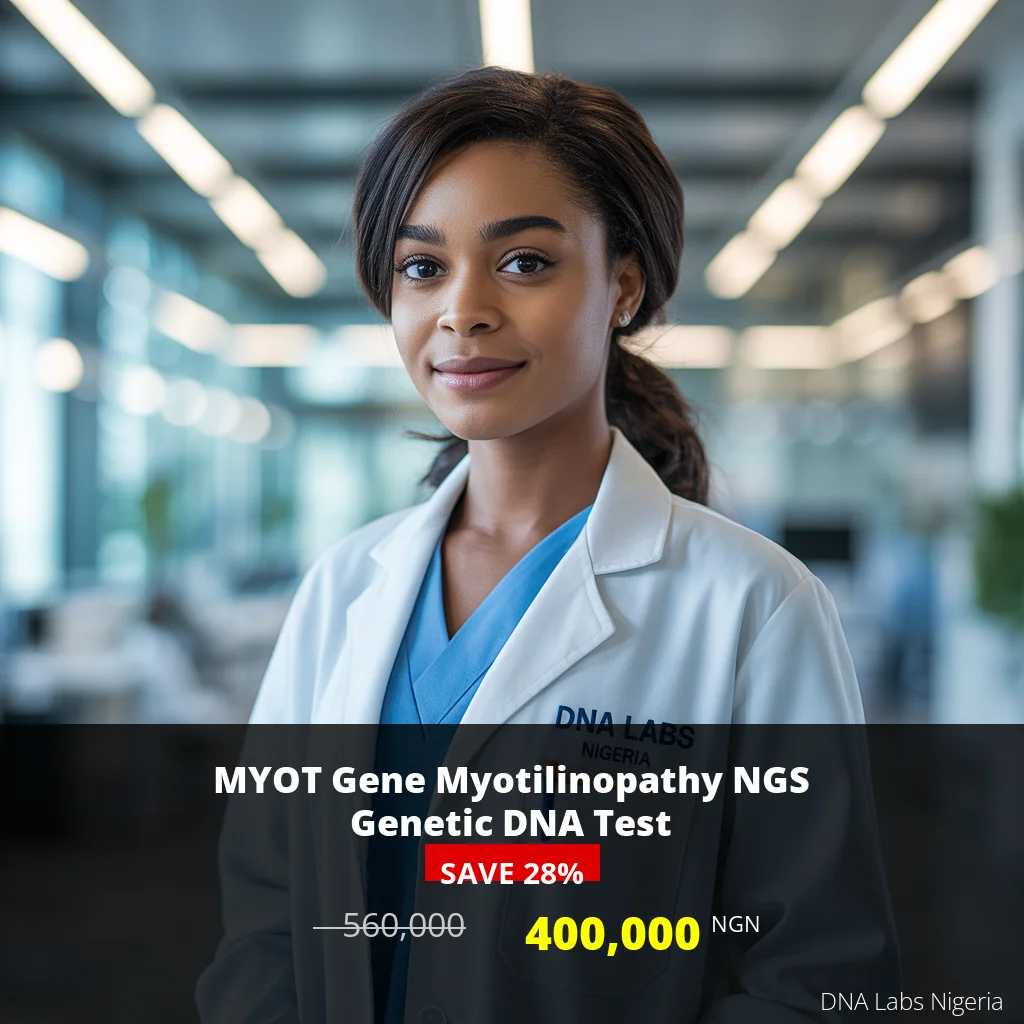MYOT Gene Myotilinopathy NGS Genetic DNA Test
Introduction
The MYOT Gene Myotilinopathy NGS Genetic DNA Test is a specialized diagnostic tool designed to detect genetic mutations associated with myotilinopathy, a rare neurological disorder. This test employs Next Generation Sequencing (NGS) technology to provide accurate and comprehensive results, enabling healthcare providers to make informed decisions regarding patient management and treatment options.
What the Test Measures
This genetic test analyzes the MYOT gene, identifying any mutations that may lead to myotilinopathy. By examining the genetic code, the test can determine the likelihood of developing this condition, thereby aiding in early diagnosis and intervention.
Who Should Consider This Test
Individuals who exhibit symptoms of muscle weakness, muscle stiffness, or family history of myotilinopathy should consider this test. Additionally, those with risk factors such as a family member diagnosed with neurological disorders may benefit from understanding their genetic predisposition.
Benefits of Taking the Test
- Early identification of genetic predispositions.
- Informed decision-making regarding treatment options.
- Guidance for family planning and genetic counseling.
- Access to targeted therapies and clinical trials.
Understanding Your Results
Results from the MYOT Gene Myotilinopathy NGS Genetic DNA Test will provide insights into your genetic status. A genetic counselor will help interpret the findings, explaining their implications for your health and that of your family. It is essential to discuss results with a healthcare professional to understand the next steps.
Test Pricing
| Price Type | Amount (NGN) |
|---|---|
| Discount Price | 400,000 NGN |
| Regular Price | 560,000 NGN |
Booking the Test
To book the MYOT Gene Myotilinopathy NGS Genetic DNA Test, please contact us at +2348110567037. Our team is ready to assist you with scheduling and any questions you may have regarding the test.
Turnaround time for results is approximately 3 to 4 weeks. The sample type required for this test includes blood or extracted DNA, or one drop of blood on an FTA card. Prior to testing, a clinical history and genetic counseling session is recommended to draw a pedigree chart of affected family members.







